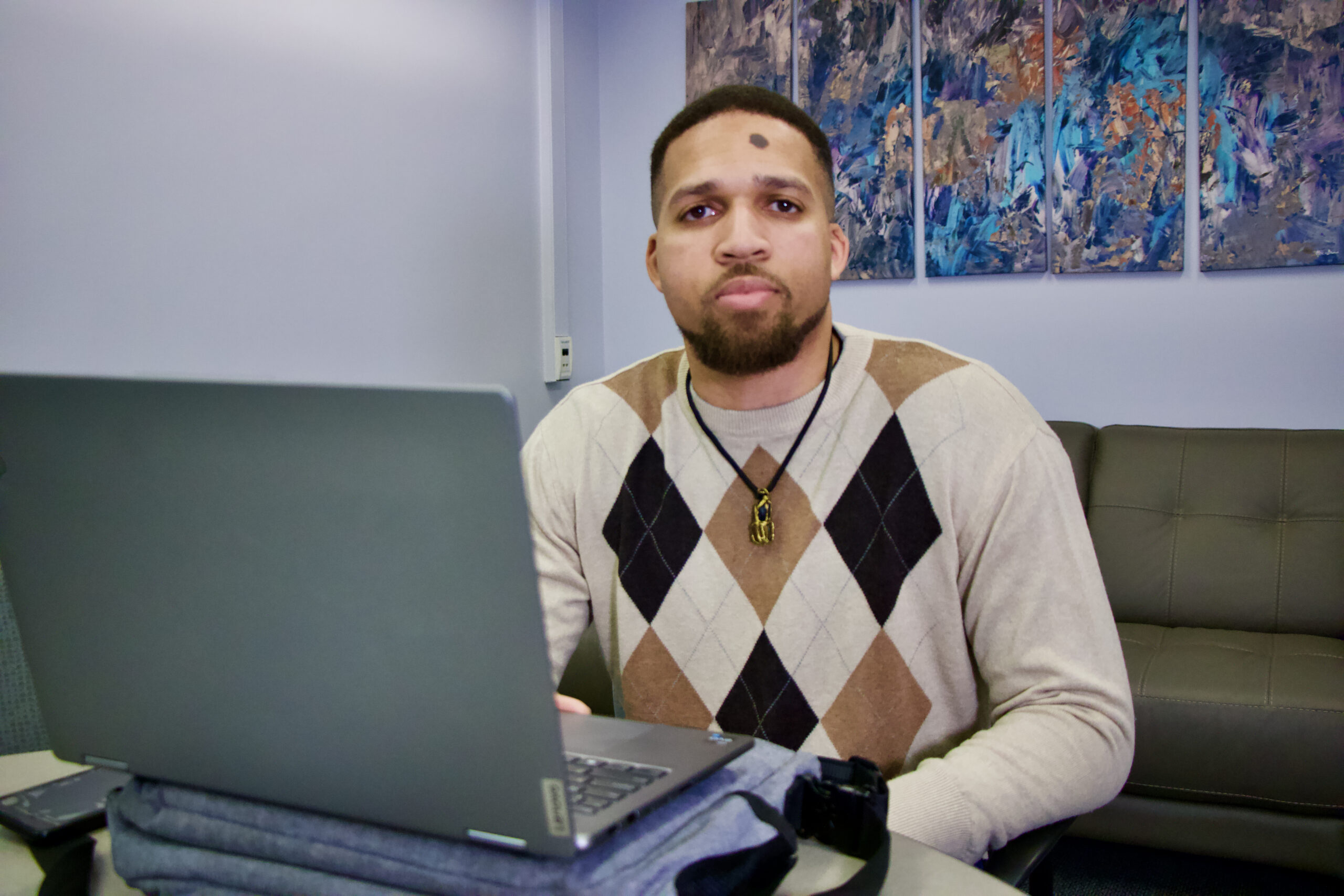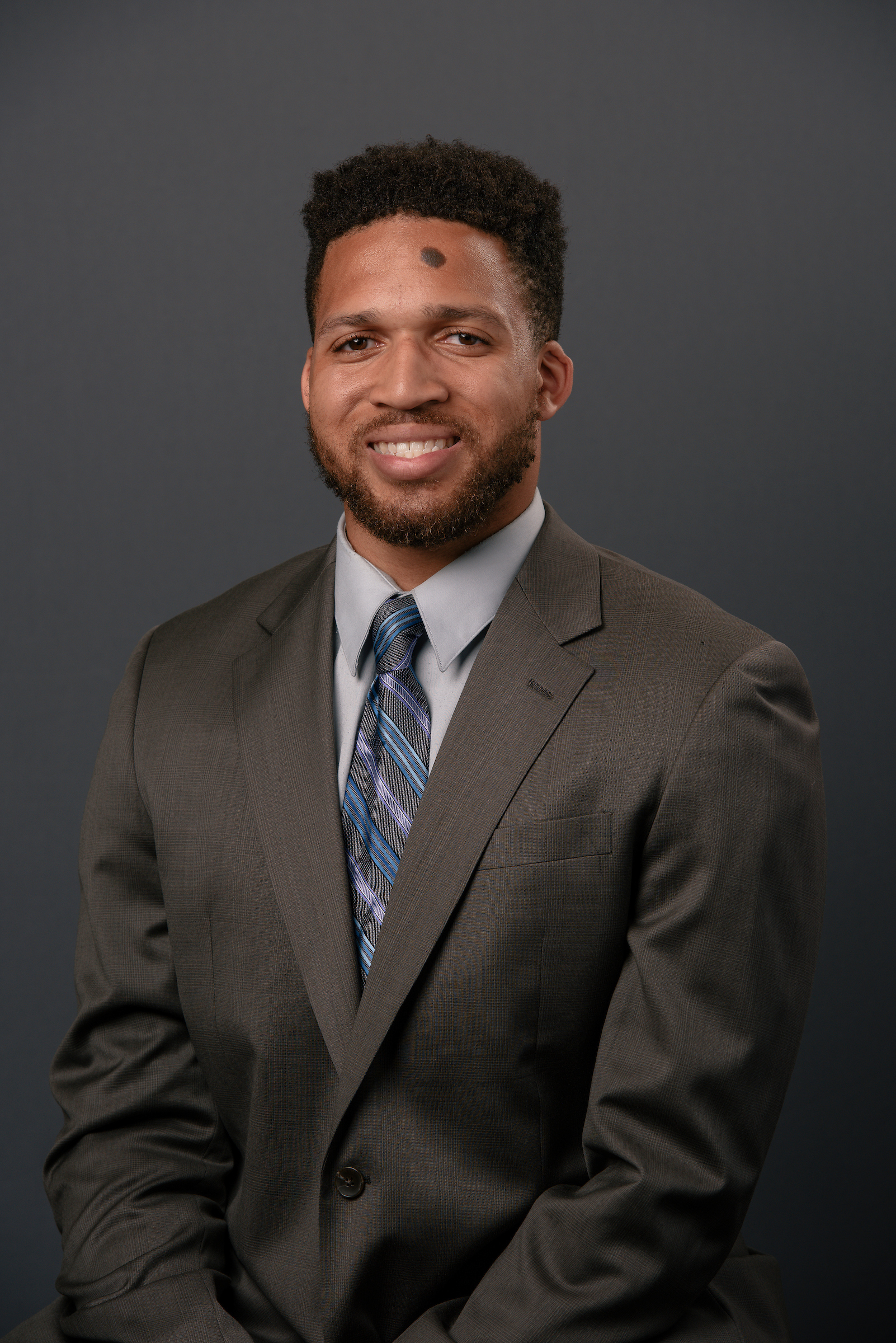Purdue psychology PhD candidate tackles personality disorder assessment research

Ronnie Hill Jr., a PhD student in the Purdue University Department of Psychological Sciences, crunches some data in thee Samuel Assessment Methods for Personalty and Psychopathology Lab.Tim Brouk
Written by: Tim Brouk, tbrouk@purdue.edu
Ronnie Hill Jr. went from studying x’s and o’s in the Purdue University football playbook to studying personality disorders in the Samuel Assessment Methods for Personality and Psychopathology Lab (SAMPPL) within the Purdue College of Health and Human Sciences’ (HHS) Department of Psychological Sciences.
A former safety for the Boilermakers of the gridiron from 2016-18, Hill graduated with a Purdue bachelor’s degree in psychological sciences in 2019. He returned to the program in the fall as a PhD candidate working alongside Associate Professor Douglas Samuel, who uses dimensional trait models to improve the assessment and conceptualization of basic personality functioning as well as personality disorders and psychopathology.

Hill’s official Purdue football headshot.
Hill’s earlier classes piqued his interest, but it wasn’t until his time as an undergraduate researcher in Associate Professor Dan Foti’s Laboratory for the Psychophysiological Analysis of Cognition, Emotion, and Reward did a career in clinical psychology take root.
“I really wanted to look at the intricacies between people,” Hill said. “Looking at differences is a big, core component of personality. I saw how deep personality differences can go. As individuals, we have a collection of personality traits. It just depends on the extremity in which you are experiencing them or that you possess them.”
Currently, Hill is getting acclimated to SAMPPL as he works on his first-year project, encompassing research on obsessive-compulsive personality disorder. He is an HHS Graduate Diversity Fellowship recipient, which is awarded to “PhD-track graduate students whose backgrounds, views and experiences would contribute to the diversity of Purdue and their respective fields of interest.”
How important is it to research mental health today?
It’s very crucial. In recent years and recent events around the world, there seems to be an increasing awareness to mental health as well as just taking care of yourself. I think it’s a great thing.
I’d like to see a huge influx of people interested in and valuing the importance of mental health and (who) are wanting to be part of the solution.
What goes on in SAMPPL?
The overall point of the lab is to research and study personality and personality pathology. A big emphasis in recent years is looking at redefining how we diagnose disorders from a categorical perspective to more of a dimensional top-down perspective.
What career goals do you have after Purdue?
As it stands right now, I see myself going into academia, but I also want to practice as well. I want to have my own private practice. I also want to teach.
What advice do you have for students wanting to get into research and eventually a PhD program?
Try to get an early start on getting experience. The earlier you start, the better. It gives you more time to experience different things and actually figure out and home in on what you want to do. You may have an idea starting out but until you actually take a deeper dive, try different things; you won’t actually know for sure. You might change your mind. My experience as a research assistant showed me what kind of research I wanted to do as well as what kind of research I didn’t want to do. That helped me. From there, I had more research opportunities after my undergrad — more clinical experience, social work areas and psychiatric hospitals. I met many different populations of clients and patients. It all helped me narrow and focus on what I was most passionate about or what I felt I could make the most difference in.
Just ask the questions and don’t be afraid to reach out to people. You definitely want to get input from others and pick brains. I found that people in the field are more than happy to share and help along the way.
What does Black History Month mean to you?
To me, Black History Month is the embodiment of all of those who have come before me, and the cultural experience of having that empowerment of achievement from others. It lays down the foundation of where I am now and where I could take it further myself.
Discover more from News | College of Health and Human Sciences
Subscribe to get the latest posts sent to your email.